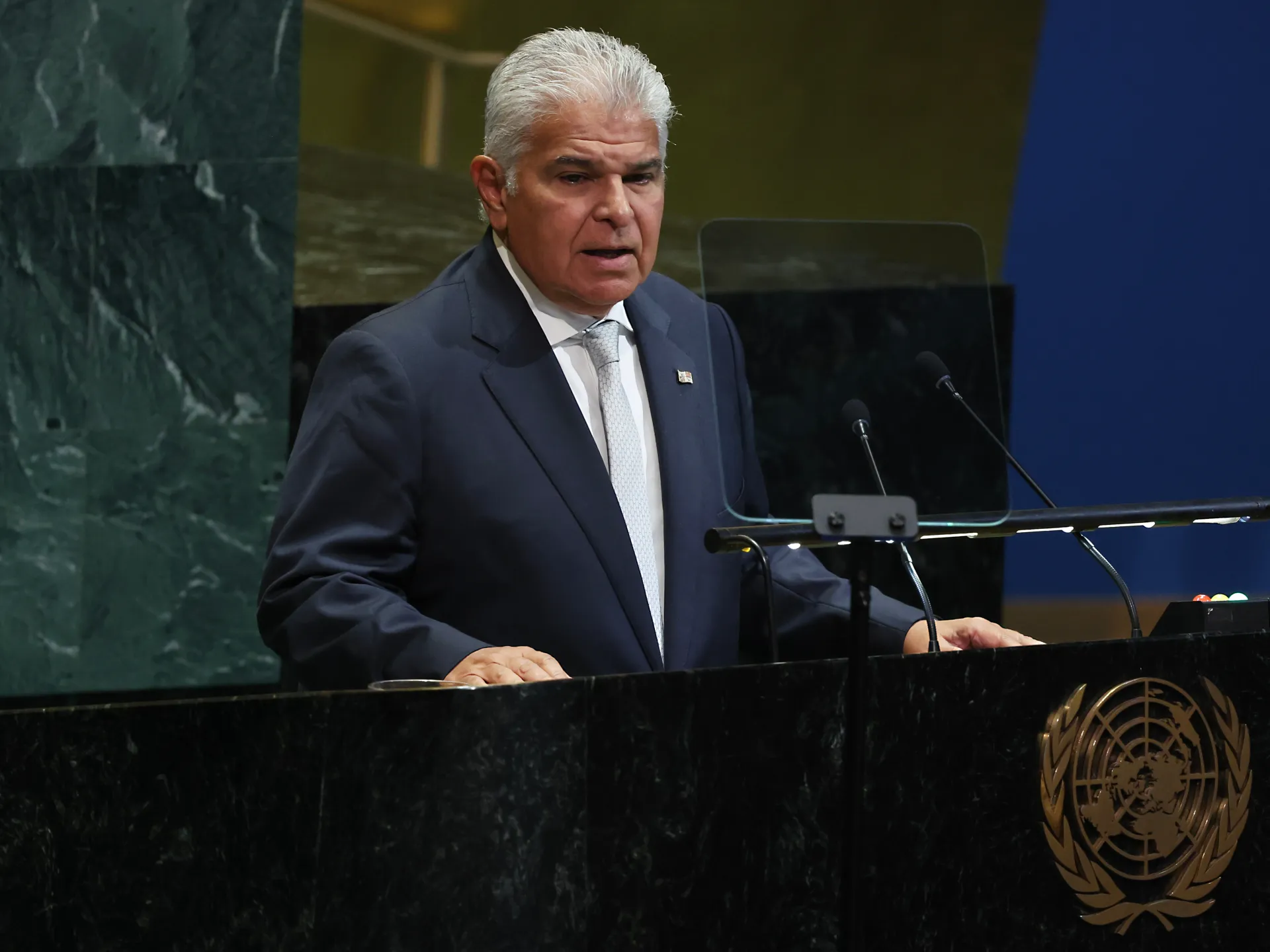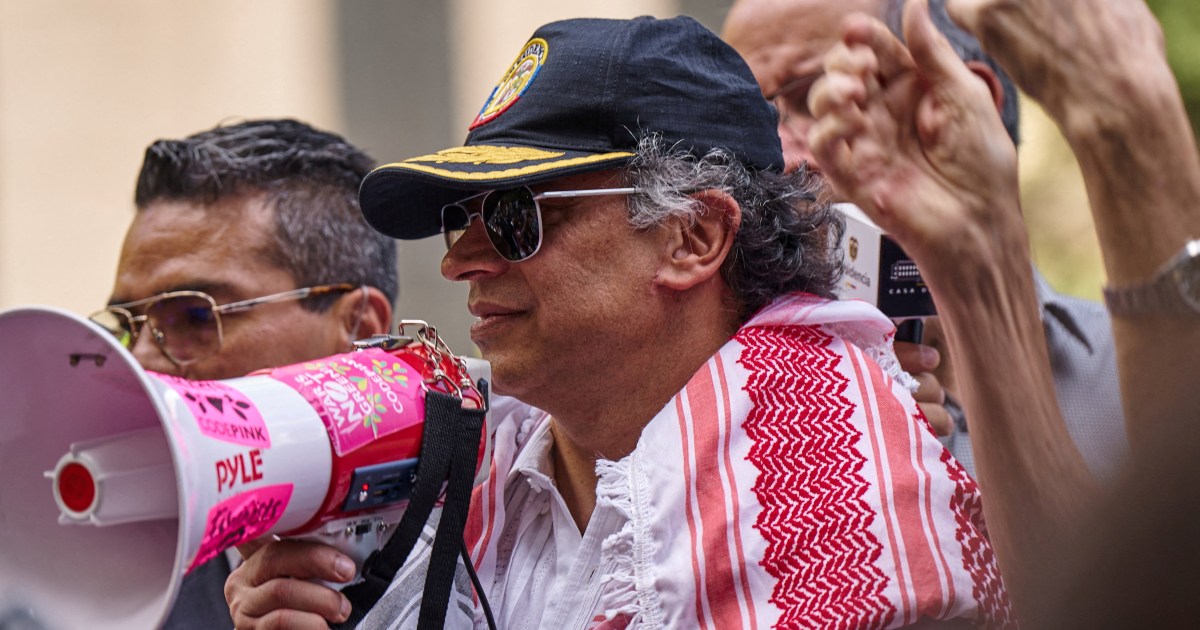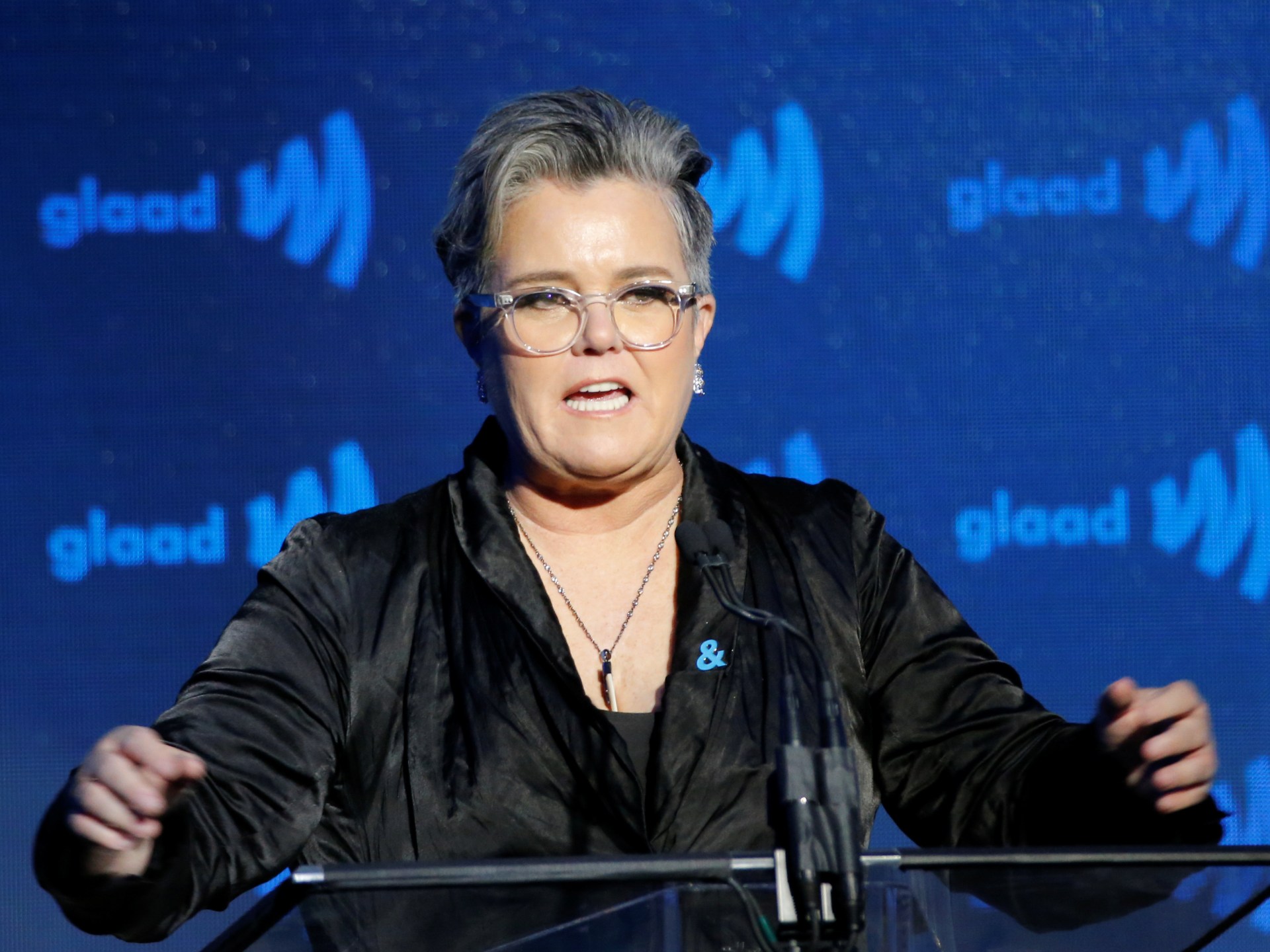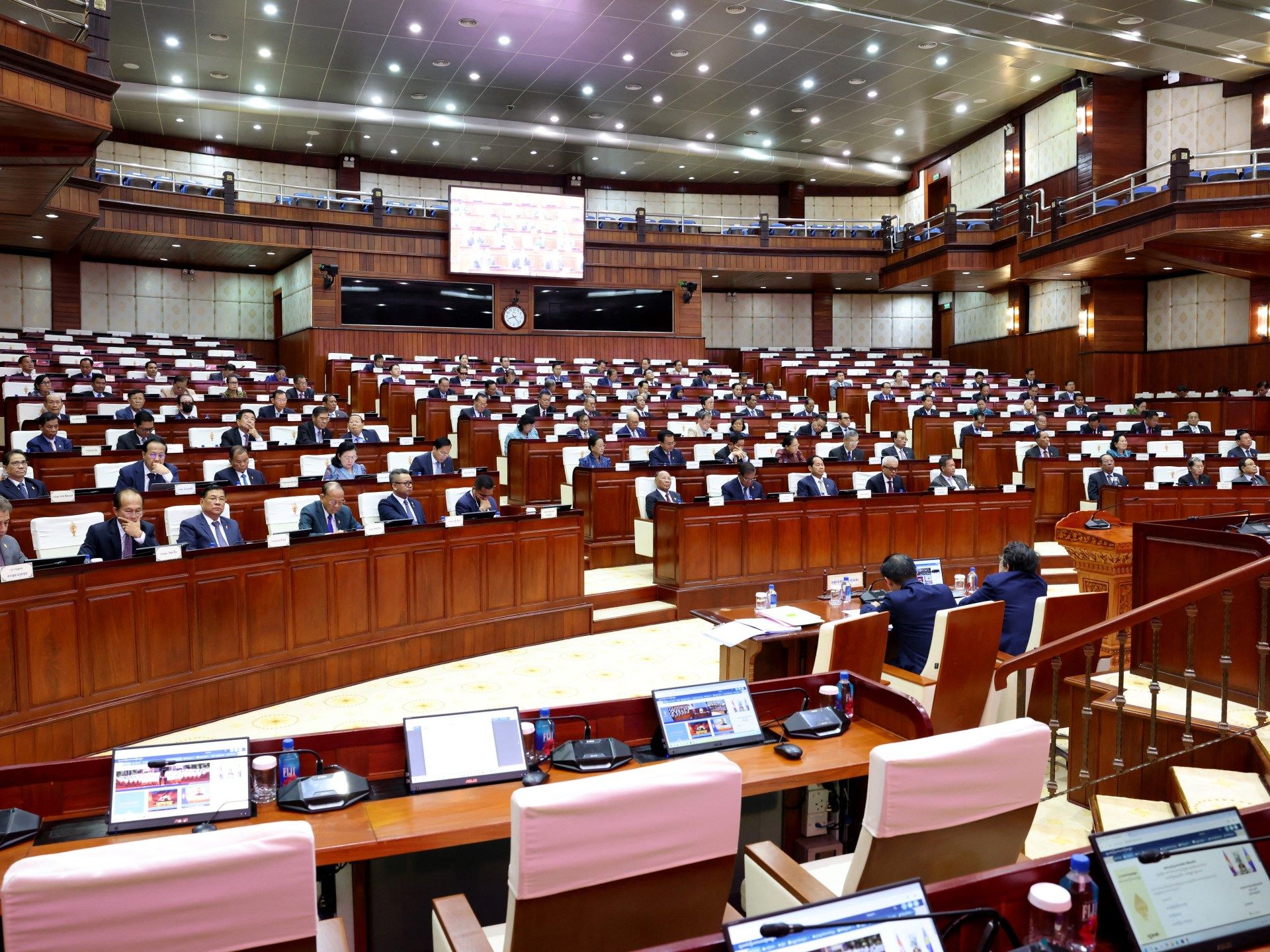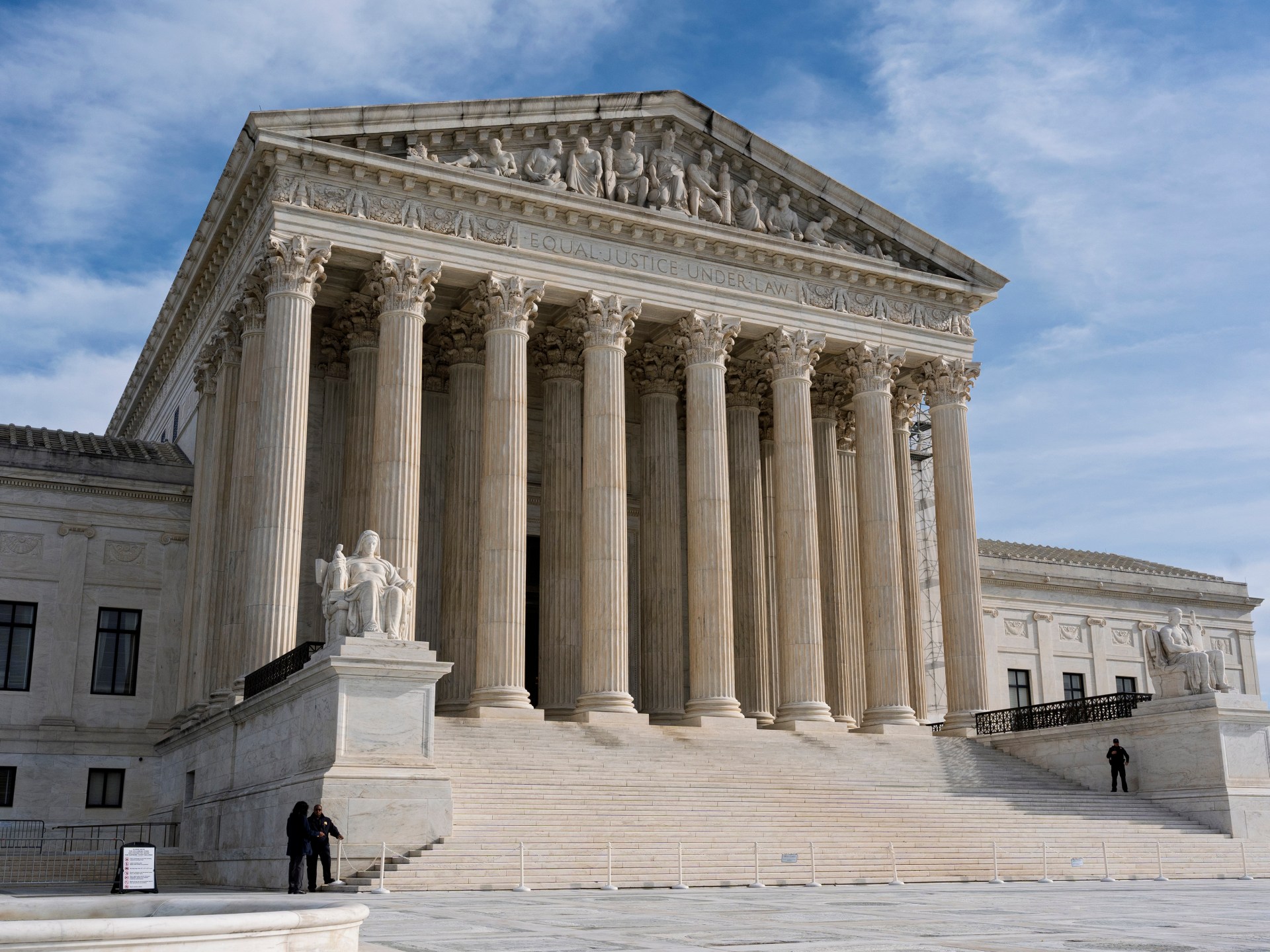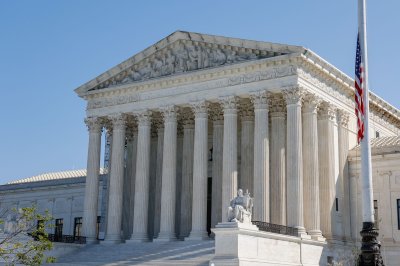Panama’s president alleges US threatening to revoke visas over China ties | Donald Trump News
Jose Raul Mulino says the visa-removal policy is ‘not coherent’ with the ‘good relationship’ he hopes to have with the US.
Published On 16 Oct 2025
Panama President Jose Raul Mulino said that someone at the United States Embassy has been threatening to cancel the visas of Panamanian officials.
His statements come as the administration of US President Donald Trump pressures Panama to limit its ties to China.
Recommended Stories
list of 3 itemsend of list
Responding to a reporter’s question at his weekly news conference, Mulino said — without offering evidence — that an official at the US Embassy is “threatening to take visas”, adding that such actions are “not coherent with the good relationship I aspire to maintain with the United States”. He did not name the official.
The US Embassy in Panama did not immediately respond to a request for comment. The Trump administration has previously declined to comment on individual visa decisions.
But in September, the US Department of State said in a statement that the country was committed to countering China’s influence in Central America. It added that it would restrict visas for people who maintained relationships with China’s Communist Party or undermined democracy in the region on behalf of China.
Earlier this week, the Trump administration revoked the visas of six foreigners deemed by US officials to have made derisive comments or made light of the assassination of conservative activist Charlie Kirk last month.
Similar cases have surfaced recently in the region. In April, former Costa Rica President and Nobel Peace Prize winner Oscar Arias said the US had cancelled his visa. In July, Vanessa Castro, vice president of Costa Rica’s Congress, said that the US Embassy told her her visa had been revoked, citing alleged contacts with the Chinese Communist Party.
Panama has become especially sensitive to the US-China tensions because of the strategically important Panama Canal.
Secretary of State Marco Rubio visited Panama in February on his first foreign trip as the top US diplomat and called for Panama to immediately reduce China’s influence over the canal.
Panama has strongly denied Chinese influence over canal operations but has gone along with US pressure to push the Hong Kong-based company that operated ports on both ends of the canal to sell its concession to a consortium.
Mulino has said that Panama will maintain the canal’s neutrality.
“They’re free to give and take a visa to anyone they want, but not threatening that, ‘If you don’t do something, I’ll take the visa,’” Mulino said Thursday.
He noted that the underlying issue — the conflict between the US and China — “doesn’t involve Panama”.
